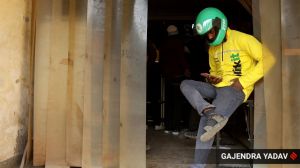Delayed chief justice
Justice Bhagwatis repudiation of his judgment suspending habeas corpus is too thin,too late.
On April 28,1976,the Supreme Court decided A.D.M. Jabalpur vs Shukla thus: In view of the Presidential Order dated June 17,1975 the declaration of Emergency,no person has any locus to move any writ petition under Article 226 before a high court for habeas corpus. The 700-year history of the most sacred right under common law,the right to have the courts protect you from arbitrary detention by the executive,had ended; high courts throughout India,inundated with pleas to produce those detained by Indira Gandhis government,would find their hands tied. The only dissenter was Justice H.R. Khanna,who quoted the moving words of Justice C.E. Hughes: A dissent in a court of last resort is an appeal to the brooding spirit of the law,to the intelligence of a future day,when a later decision may possibly correct the error. Khanna paid. He was superceded by Justice M.H. Beg,one of the four others on that bench; Beg became Chief Justice,Khanna did not. Indeed,all on that bench but Khanna served a term as Chief Justice.
One of them,Justice P.N. Bhagwati,now says he also believes the A.D.M. Jabalpur decision was an error. Talking to The Indian Express,he said he was wrong,that he yielded to his colleagues,and that he was sorry. In other recent interviews,he has said that he attempted to atone by practically re-writing swathes of the Constitution. He has already taken credit for beginning the strengthening of Article 21,the right to life,the source of many of the progressive judgments that have marked the courts recent history. Yet the first grievous blow to Article 21 was the meek submission of the supreme judiciary to executive power that A.D.M. Jabalpur represented. Bhagwati himself,after bowing to the harsh winds that blew across India in the Emergency years,criticised Mrs Gandhi during the Janata regime and then wrote a letter welcoming her back to office in 1980.
The love of liberty that he claims motivated his subsequent jurisprudence was name-checked,too,in the judgment that struck down habeas corpus: I have always leaned in favour of upholding personal liberty8230; But I do not think it would be right for me to allow my love of personal liberty to cloud my vision. Who could believe now that the courts vision that day was unclouded? But it was not the love of liberty that did it. Justice Bhagwatis repudiation of his earlier views is,in this context,not convincing enough and far too late.
- 01
- 02
- 03
- 04
- 05































